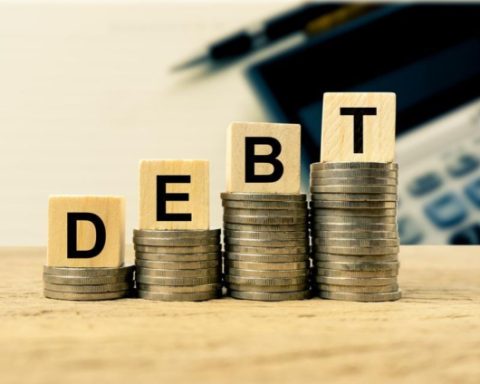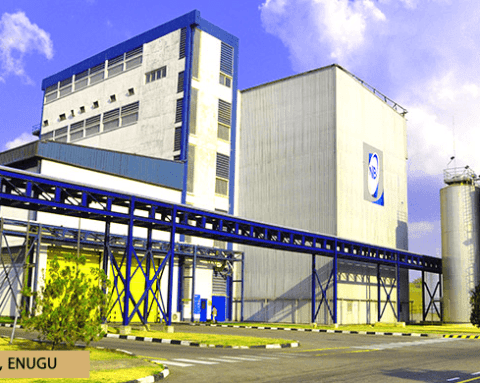Nigeria’s escalating public debt has triggered concerns about the economic and social impact.
The public debt has surged to N149.39 trillion (approximately $97.24 billion) as of 31 March 2025, according to data released by the Debt Management Office (DMO).
Join our WhatsApp ChannelThis marks a 22.8 per cent or N27.72 trillion year-on-year increase from N121.67 trillion in the first quarter (Q1) of 2024 and a 3.3 per cent quarterly rise from N144.67 trillion in December 2024.
Out of the total debt portfolio, the DMO data showed that external debt increased by N14.61 trillion, or 26.1 per cent, to N70.63 trillion ($45.98 billion) at the end of the first quarter of 2025, up from N56.02 trillion ($42.12 billion) in the same period last year.
On a quarterly basis, the country’s external debt increased by N344 billion, or 0.5 per cent, compared to N70.29 trillion in December 2024.
The domestic debt stock increased by N13.11 trillion, or 20 per cent, to N78.76 trillion ($51.26 billion) in March 2025, up from N65.65 trillion ($49.35 billion) the previous year.
The Federal Government accounted for N74.89 trillion of the domestic debt, with sub-national governments and the FCT holding N3.87 trillion each.
Nigeria’s debt-to-revenue ratio is equally worrisome, having risen to alarming levels in recent years.
The government earned N20.6 trillion in revenue between 2022 and 2024, but spent N25.12 trillion on debt servicing.
This indicates that during that time, debt service alone exceeded total revenue by about N4.5 trillion, a trajectory that is basically unsustainable.
This alarming growth has raised serious concerns about debt sustainability, fiscal stability, and the country’s ability to meet its obligations without compromising essential public services.
Key Drivers of the Debt Surge
Naira Depreciation
The naira’s fall from about N1,330.26/$1 in Q1 2024 to N1,536.32/$1 (Q1 2025) has been blamed for the latest surge in the external debt. It rose by 26.1 per cent to $45.98 billion (N70.63 trillion), in naira terms, despite only a $3.86 billion rise in dollar terms.
Continous Borrowing
The federal and state governments continue to rely heavily on domestic and external borrowing to finance budget deficits and infrastructure projects. Fresh borrowings contributed significantly to the N4.72 trillion quarterly increase.
The 2025 budget includes a N13.08 trillion fiscal deficit. This means the Federal Government will borrow approximately that amount to finance the deficit in the budget.
Proposed fresh loans of $24 billion (N38 trillion) could push debt to N182 trillion.
High Debt Servicing Costs
According to data from the Central Bank of Nigeria (CBN), $2.01 billion was spent on external debt servicing between January and April 2025, accounting for 77.1 per cent of Nigeria’s international payments.
A breakdown of the CBN’s data on international payments showed that $540.67 million was spent on servicing external debt in January, $276.73 million in February, $632.36 million was paid in March, and $557.79 million was paid in April.
Debt servicing costs have skyrocketed, with 65 per cent of the 2025 budget allocated to debt repayment, personnel costs, and overheads.
Debt-service-to-revenue ratio hit 156.77 per cent, meaning Nigeria spends more on repayments than it earns.
With the current state, the country is facing a debt sustainability crisis. The debt-to-GDP ratio rose to 55 per cent in 2024, and there are concerns it may hit 70 per cent or more in 2025, exceeding the IMF’s 60 per cent threshold for emerging markets.
The IMF recently projected Nigeria’s fiscal deficit to reach 4.5 per cent of GDP in 2025, exceeding the 3 per cent limit set by the Fiscal Responsibility Act.
In a report earlier this year, Cardinalstone projected that Nigeria’s debt could reach N187.79 trillion by the end of 2025 due to borrowing costs and naira depreciation.
According to the analysts, the surge will be driven by the issuance of a dollar-denominated domestic bond, regular borrowings through Nigeria Treasury Bills (NTBs) and bonds, and the nation’s recent return to the Eurobond market to raise $2.20 billion.
The nation’s Eurobond maturities over the next ten years are expected to average $1.33 billion annually, it said, adding that total yearly debt servicing expenses, including coupon payments, may average $2.24 billion.
READ ALSO: N24bn Loan: Nigeria Trapped In A Vicious Cycle Of Debt – Atiku
Reacting to the development, Mandate4, a group advocating good governance, said the latest DMO report raises serious concerns about Nigeria’s debt burden.
The group said debt servicing costs are increasingly consuming a large portion of the country’s revenue, limiting funds for crucial development projects.
“The DMO’s report signals a deepening fiscal crisis. The rapid growth of Nigeria’s debt, particularly how Naira depreciation inflates external obligations, puts immense pressure on the nation’s budget. The alarming cost of debt servicing is a critical red flag, often outstripping the government’s ability to generate revenue. This unsustainable trend diverts resources from essential sectors like infrastructure, education, and healthcare,” the group stated in a statement released Tuesday, signed by its founder, Century Favour.
On the way forward, it said Nigeria urgently needs a robust and multifaceted strategy to tackle the debt burden.
It highlighted some measures which include expansion of non-oil revenue streams and improving tax collection efficiency, cutting wasteful spending, ensuring that borrowed funds are directed only towards productive, high-impact projects, and providing oversight on how borrowed funds are utilised for national benefit.
It also urged continued implementation of policies to stabilise the Naira to ease the burden of external debt.
“The DMO’s Q1 2025 report is a stark reminder that decisive action is needed now to secure Nigeria’s economic future,” it added.
Victor Ezeja is a passionate journalist with seven years of experience writing on economy, politics and energy. He holds a Master's degree in Mass Communication.













